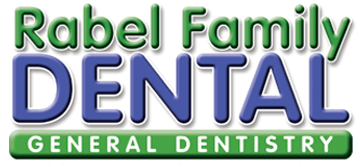Low-carb diets are all the rave these days, and for a good reason. These diets help you lose weight, improve your cardiovascular health, and may even lower your risk for certain cancers. But low-carb diets may also help improve your oral health. Learn how Keto, Atkins, and other carb-restricting diets might affect your mouth, teeth, and gum health.
Tooth Decay
Tooth decay occurs for various reasons, but regularly consuming a high amount of carbohydrates and sugary foods elevate your risk.
Every person has some level of plaque on their teeth, and that plaque contains disease-promoting bacteria. Carbohydrates give these bacteria the energy they need to flourish and encourages the production of dangerous acids that eat away at your teeth's enamel. Some low-carb diets restrict carbohydrate consumption to around 50 to 150 grams per day, which is considerably lower than the average person's diet.
When you reduce the amount of bread, cookies, pasta, sugar, and other high carbohydrate-containing foods you eat, you automatically cut out much of the fuel the bacteria in your mouth thrive on. As a result, you can inadvertently lower your risk for tooth decay.
Gum Disease
Gum disease is the result of an infection that targets the gum tissue. The condition can lead to chewing difficulties, bad breath and swollen and bleeding gums. In advanced stages, gum disease can lead to tooth loss. Poor oral hygiene practices, such as failing to floss, are often linked to gum disease.
A vitamin D deficiency may also increase your gum disease concerns. Low-carb plans encourage you to eliminate nutrient-empty processed foods from your diet and replace them with healthier vitamin D boosting food choices like salmon.
Carb restrictive diets also require you to incorporate more low-carb vegetables into your diet, like arugula and spinach, which are excellent sources of calcium. Calcium keeps your teeth strong and healthy.
If you have already been diagnosed with gum disease, understand that a low-carb diet is not a cure. You can continue with the meal plan, but you must visit a dental provider for an effective gum disease treatment option.
Ketosis Breath
One downside of a carb-restrictive diet is foul-smelling breath, known as ketosis breath. The human body first targets carbohydrates for energy. Only when your carbohydrate storage is depleted does the body turn to fat as energy fuel. When a person consumes few carbohydrates, their body almost immediately turns to fat for energy.
When you convert fat into energy, your body releases ketones, which produce a chemical or metallic like smell. Ketosis breath is typical with a low-carb diet and is proof that your efforts are working. If you don’t like Ketosis breath, drinking more water can help. Ketones are released through your breath and your urine. The more water you drink, the more of the ketones you can release through urination.
Also, make sure you aren't skipping any meals while following your diet. Each time you eat or drink, these processes fuel saliva production. When you don't eat, saliva production slows, and you may develop dry mouth. Dry mouth can also cause your breath to have a chemical-like odor.
However, dry mouth also slows the rate at which harmful bacteria are eliminated from your mouth, including those bacteria that attack your teeth's enamel. Eat regularly to protect your oral and overall health.
A low-carb diet may yield some unexpected benefits, but dieting is not a substitute for good oral hygiene and regular dental checkups. You must stay committed to protecting your mouth, teeth, and gums. For questions about how the foods you eat might affect your oral health or any other dental related concerns, contact Rabel Family Dentistry for the
help
you need.







